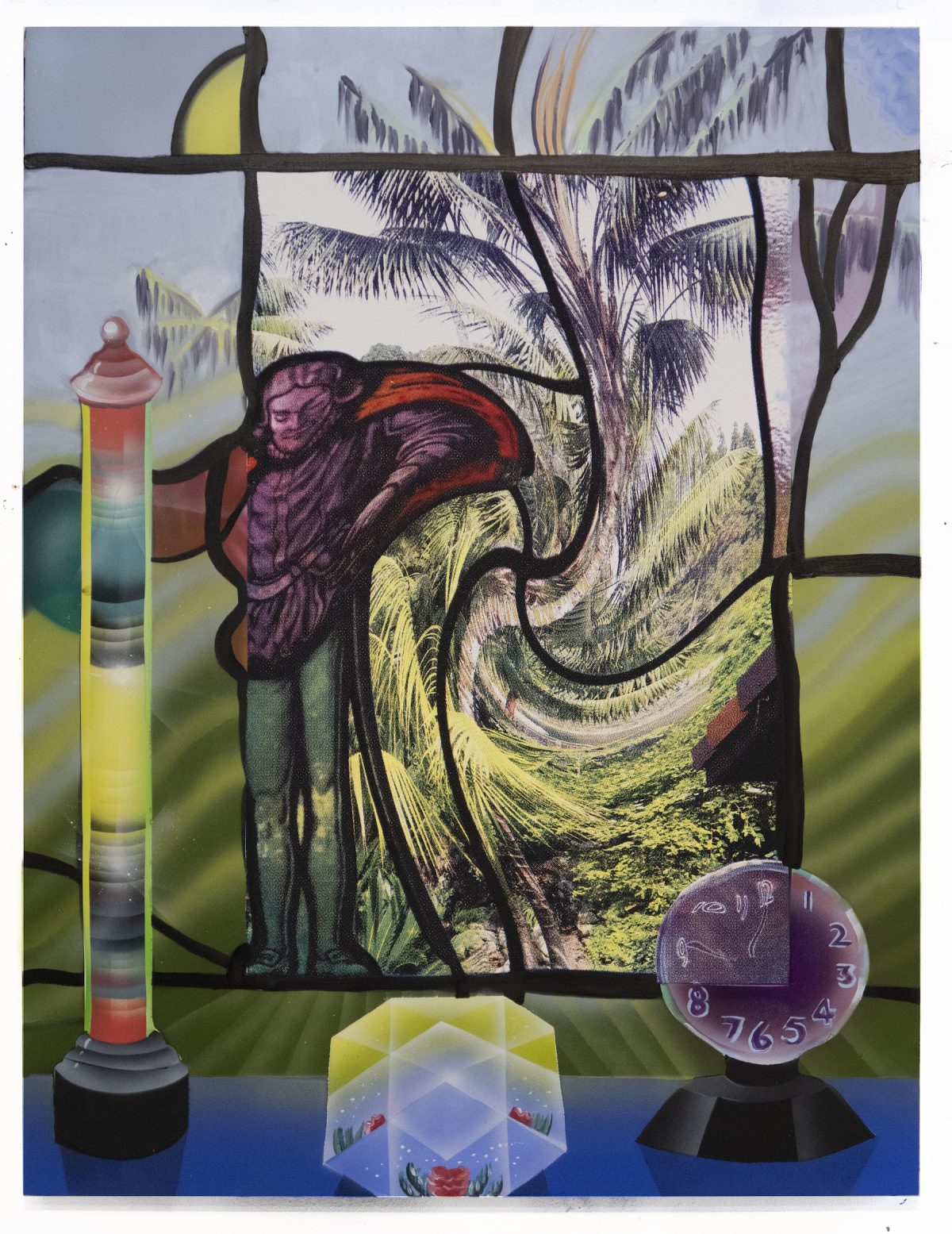[ad_1]
CHICAGO — The matter-of-fact title of Melissa Brown’s solo presentation at Andrew Rafacz in Chicago, Thrift Store Find, belies the complexity she draws from the particular power of the secondhand in United States culture: Used objects carry with them their own inscrutable histories. At the same time, they serve as blank slates, reflecting human desires and associations and taking on fresh meanings in each new setting. Across eight new paintings and an “exhibition within the exhibition,” all of which feature found and thrifted items, the New York-based artist creates a world that is animated, maybe even enchanted, by the multivalence of these things.
Brown’s still life paintings are in fact dynamic tableaux whose subjects are imbued with an often uncanny sense of vitality. Look closely and you’ll notice that the tissue in “Waiting Room” (all paintings 2022) is as transparent as the ribbon of vapor wafting out of the diffuser next to it. The jumpy keyboard in “Player’s Table” seems poised to lose some of its keys to Lake Michigan, outside the window. A breeze gently stirs a shimmering mobile in “Windspinner,” and light appears to collapse into a vortex at the center of the trippy “Stopped Time at Lake Shrine.” Eggs, houseplants, water, various vessels — these all suggest life and growth. Yet references to mortality — a burning candle, a clock, a figurine of Anubis, the Egyptian god of death — also inhabit the compositions. To read any of these merely as symbolic, though, would flatten the rich interplay between the objects’ legibility and illegibility, their past lives and potential futures.

Two additional paintings are layered trompe-l’oeil renderings of found artworks. In “Recollections,” a tag painted near the bottom notes that the piece is a “Vintage Needle Point Collage,” while “Smoking Sailor” features an archetypal naval figure, bearded and wearing a rumpled hat and raincoat, gazing into the distance. These works, in particular, showcase how the textures of Brown’s various techniques, including stencil, airbrush, screen-printed digital photography, and impasto, create both spatial and conceptual depth. Segments of the image seem to come in and out of focus, almost as if multiple registers of time are visible simultaneously.
Presented alongside Brown’s canvases is a two-wall installation of actual thrift store finds, which run the gamut from a decoy duck to a Darth Vader belt buckle, from a gray wig to a black plastic magazine file, along with an array of vintage glassware and kitschy ceramics. These items were contributed by 29 Chicago-area artists as part of a poker tournament organized by Brown just before the exhibition’s opening. Each invited player bought into the game with one of the objects, so the display here represents the overall pot, won by one of the artists, as well as a nexus of this local network. The collaborative gesture introduces another dimension to the exhibition: that of circulation and exchange, of the embodied and interconnected human relationships that facilitate the flows of objects, and their critical role in (re)making the new.
Melissa Brown: Thrift Store Find continues at Andrew Rafacz Gallery (1749 West Chicago Avenue, Chicago, Illinois) through July 16. The exhibition was organized by the gallery.
[ad_2]
Source link


:strip_icc()/BHG_PTSN19720-33d9cd22f6ab49e6a21982e451321898.jpg)

More Stories
The Ultimate Suit Lining Style Refresh
Review of Jackson’s Curated Sets: Moku Hanga Printmaking
Gurney Journey: Midwinter Greetings